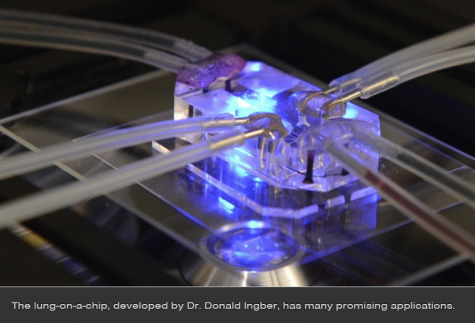Students share opinions on animal testing
From shampoos to cosmetics and medicines, animals are the first to test out products from certain companies.
According to the American Society for the Prevention of Cruelty to Animals (ASPCA), it is still legal in 80 percent of countries to blind, poison and kill animals in order to test products. In China alone, an estimated 300,000 animals die each year due to cosmetic tests.
Companies such as Covergirl, Chapstick, Crest, MAC, Glad and many more are still testing on animals in and around the U.S.
Junior Cassandra Quinby said testing on animals is necessary to ensure human safety.
“I do think that most testing on animals is cruel,” Quinby said. “There’s really no other way to know what the effects will be unless you test them and you don’t want to put something out on the market that hasn’t been tested.”
Quinby said she would be willing purchase cruelty free or non-animal tested products.
“It’s really sad that some animals have to pay the price for testing,” Quinby said. “But I think a lot of people can agree that it’s worse to lose a person than an animal.”
Junior Kodi Custine said they believe there are alternatives for testing on animals that companies should be using.
“I think untested products should be tested on criminals,” Custine said. “The animals did nothing wrong. It makes more sense to test on someone who deserves it rather than a being that is completely innocent.”
Custine added that testing products intended for humans on criminals would give more accurate results.
Replacements for animal testing are beginning to develop all over the world and are proving to be more beneficial for results. In a study done by PBS Nova, a scientist developed a microchip smaller than the average person’s thumb that mimics a human lung. This robotic lung can be used to show what the effect of certain medicines are on this part of the body.
Freshman Lacy Miller said she doesn’t usually check for cruelty-free products when purchasing items.
“I don’t think is a humane way to test animals as of now,” Miller said. “But science has come very far and I think it will possible for them to test in a humane way in the future.”
Miller said she doesn’t know of any specific brands that don’t test on animals.
People for the Ethical Treatment of Animals (PETA) compiled a list of companies that do not test on animals. The list is over 30 pages long and continues to be updated.
Quinby said she feels testing on certain animals is less harmful than testing on others.
“Sadly, I would prefer testing to be performed on something like a rat instead of a dog.” Quinby said.
According to the Humane Society of the United States, animals such as: bunnies, guinea pigs, hamsters, rats and mice are typically subjected to tests. These animals endure blindness, seizures, internal bleeding, ulcers and death.

Sophomore Shianne Smith said all animals should be treated the same.
“I do own a lot of Elf products which is a brand that is typically known for not testing on animals,” Smith said. “No animal should be tested on, no matter how populated it may be. I don’t think that there is a way to humanely test on animals.”
Junior Ragan Arnold said she is completely against animal testing.
“Animals have emotions and feelings just like humans do,” Arnold said. “Animals deserve the same right to be respected.”
Arnold added that she typically purchases non-animal tested products.
“I try not to buy make-up, face washes, nail polish or anything else tested on animals,” Arnold said. “I like to stick towards natural things. LUSH and Etsy have non-animal tested items and some other dollar stores carry them too.”
Arnold said she believes animal testing should be illegal.
“It really doesn’t matter what the animal is,” Arnold said. “There is no humane way to test on animals. They should never be tested on. All animals have feelings.”
17aweber@usd489.com

Anniston Weber is Co-Editor-in-Chief of the Guidon and a senior this year. She has been involved with the Guidon for three years. In addition to being...





![English teacher Vanessa Schumacher likes to decorate her classroom for Christmas along with her house. Her school decorations are complete with a mini tree, as well as festive garland and lights hung around her room. “Every year I bring [the tree] on Nov. 1, or right after Halloween,” Schumacher said. “I bring it just to be funny.”](http://hayshighguidon.com/wp-content/uploads/2022/12/Christmas-Decorating-Schumacher-Tree-242x475.jpg)











